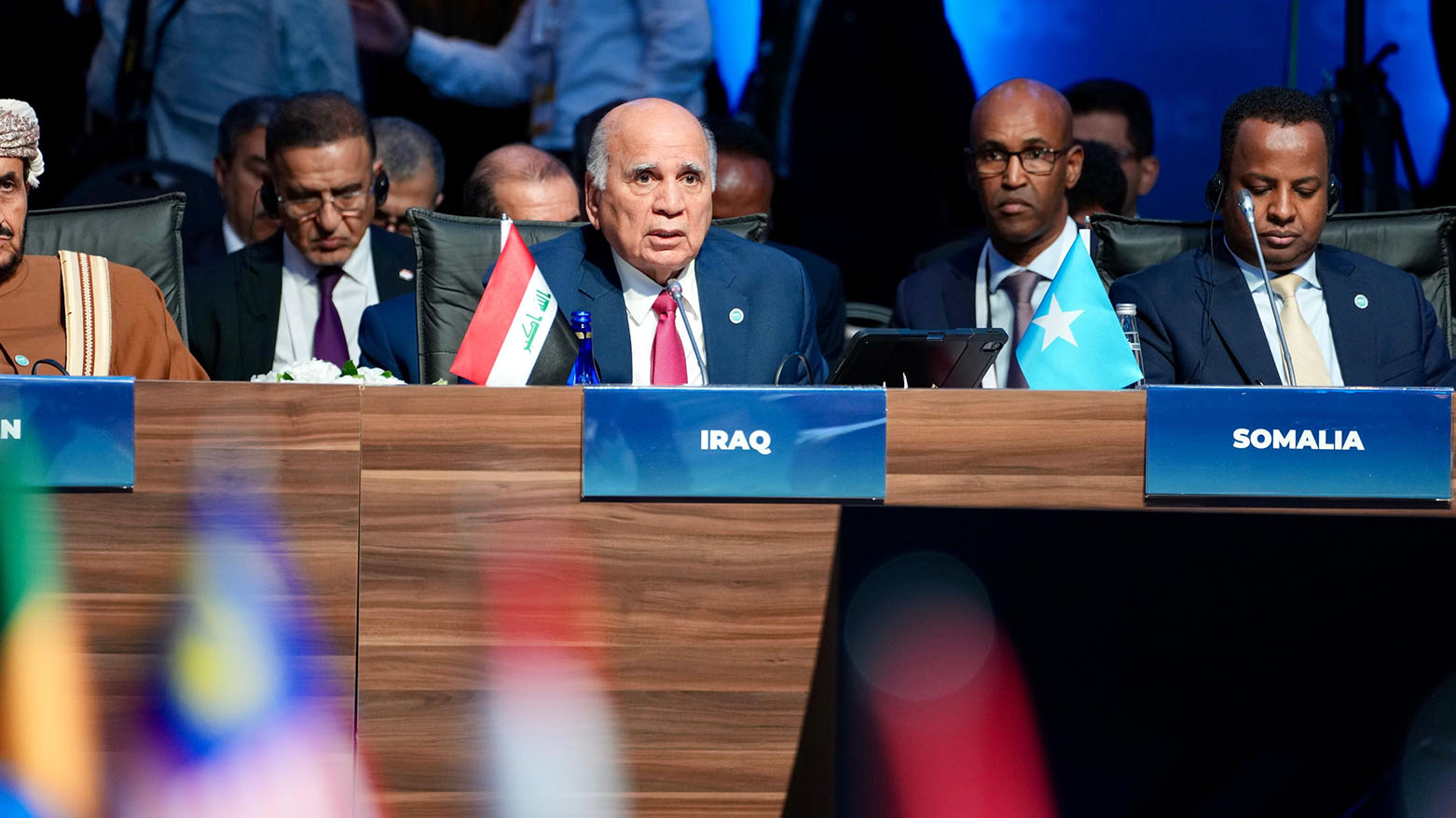Iraq’s FM Fuad Hussein: Dialogue Is the Sole Path to Prevent Regional War
Iraq pushes Arab-Islamic mediation to de-escalate Iran-US tensions, warns of nuclear/environmental risks from Israel's strikes. Proposes OIC crisis committee amid airspace violations.

ERBIL (Kurdistan24) – Iraqi Deputy Prime Minister and Foreign Minister Fuad Hussein affirmed on Saturday, that Iraq—currently chairing the Arab League summit—will persist in advancing dialogue and negotiation tracks, especially between Iran and the United States, as the only viable route to halt escalation and avert a devastating regional war.
Delivering Iraq’s address during the 51st session of the Council of Foreign Ministers of the Organization of Islamic Cooperation (OIC), convened in Istanbul, Hussein emphasized that the Middle East is undergoing “unprecedented escalation due to continued Israeli aggression,” particularly against Gaza and Iran, and stressed the need for practical and effective decisions to extinguish the growing crisis.
Condemning Israeli Escalation in Gaza and Iran
At the outset of his speech, Hussein held “the Zionist entity fully responsible for the escalation across the region,” urging swift international action to halt what he described as a “genocidal war against the Palestinian people in Gaza.” He called for a binding UN Security Council resolution to stop the aggression immediately and enable urgent humanitarian aid to enter the besieged strip.
Reiterating Baghdad’s consistent position, Hussein declared Iraq’s unwavering support for the Palestinian cause and the Palestinian people’s right to self-determination and the establishment of their independent state with Jerusalem as its capital.
Addressing Israeli attacks on Iran, the minister conveyed “Iraq’s deep concern over repeated Zionist violations of regional airspace, including Iraqi airspace,” warning of “unpredictable consequences.” He further cautioned that targeting religious leaders or nuclear sites could “ignite total chaos and destabilize the region.”
Environmental Risks and Airspace Violations
Hussein warned that any attack on Iran’s nuclear infrastructure could trigger an environmental and health catastrophe extending beyond Iran’s borders. He called for implementing the 1995 Non-Proliferation Treaty Review Conference resolutions, particularly the creation of a nuclear-weapons-free zone in the Middle East.
Rejecting any use of Iraqi airspace for regional score-settling, Hussein confirmed that the closure of large sections of Iraq’s skies had caused “serious economic damage” and left thousands of Iraqi nationals stranded abroad. He appealed to neighboring countries to recognize the humanitarian dimension of the crisis and facilitate the return of Iraqi citizens.
Iraqi Initiative for Arab-Islamic Mediation
The foreign minister revealed that Iraq had submitted an official proposal during the emergency meeting of Arab foreign ministers on Friday in Istanbul, calling for the establishment of an Arab-Islamic follow-up committee. The body would engage with the United States, European powers, and Iran to explore pathways for de-escalation and to avert further risks.
“We call on Islamic states to support this initiative in a practical and unified manner,” he said.
Commitment to Regional Cooperation
Concluding his remarks, Hussein highlighted the importance of revitalizing Islamic cooperation in economic, trade, and environmental sectors. He pointed to Iraq’s ongoing infrastructure initiatives, including power grid interconnection projects with the Gulf, Jordan, and Turkey, and called for collective efforts to confront climate change, water scarcity, and desertification.
The minister also announced Iraq’s readiness to host the next session of the OIC Council of Foreign Ministers in Baghdad, underscoring Iraq’s growing role as a regional convener and advocate for diplomatic solutions.
